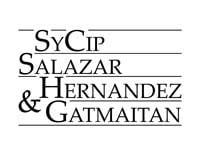News and developments
Philippines: BIR Updates its Procedures for Claiming Tax Treaty Benefits
In March 2021, the Philippine Bureau of Internal Revenue (BIR) issued Revenue Memorandum Order No. 014-21 (the Memorandum), which streamlines the procedures for non-resident corporations and other juridical entities (collectively "non-resident taxpayers") to access Philippine tax treaty benefits.
Scope of Memorandum
The Memorandum covers Philippine-sourced income derived by non-resident taxpayers from the Philippines, which are entitled to relief from double taxation under a relevant tax treaty. In addition to streamlining the procedures in availing tax treaty benefits, the Memorandum:
Administrative guidelines
The BIR requires that, prior to the first income payment, non-resident taxpayers submit:
The withholding agent or income payor may rely on these documents to determine whether to apply a reduced rate of, or exemption from, withholding tax on income derived by a non-resident taxpayer from sources within the Philippines. Withholding agents or income payors are designated by Philippine law as agents of the non-resident taxpayers and are obliged to withhold income tax payments due to the non-resident taxpayers and remit these to the government.
In case the withholding agent applies a preferential tax treaty rate, the withholding agent is required to file a request with the BIR for confirmation on the propriety of the withholding tax rate. The request may be filed at any time after the payment of withholding tax, but no later than the last day of the fourth month following the close of each taxable year.
Where the withholding agent applies the regular tax rate, the non-resident taxpayer may seek tax treaty relief by filing an application with the BIR. The application may be filed at any time after the receipt of the income that is subjected to tax. The application must be accompanied by supporting documents to prove entitlement to tax treaty relief depending on the type of income involved. Documents executed in a foreign country must either be authenticated by the Philippine embassy or apostilled by the relevant government agency at the place of execution. The application must be processed within four months from the submission of all supporting documents or as soon as practicable.
Treatment of long-term contracts
The Memorandum order generally mandates only one request or application for each transaction. However, for long-term contracts (ie, effective for more than one year), the withholding agent or non-resident taxpayer is required to update the BIR annually by filing the following documents no later than the last day of the fourth month that follows the close of each taxable year:
Resolution of request or application
The BIR will issue a certificate of entitlement (COE) to tax treaty benefits if the request for confirmation or application for tax treaty relief is approved. There are two types of COE:
If the BIR grants the application for tax treaty relief, the non-resident may apply for a refund of any excess tax withheld within two years from the date of payment. If the BIR rules that it was improper to apply the preferential tax rate or denies the tax treaty relief application, the withholding agent will have to pay the deficiency tax and penalties on behalf of the taxpayer. The withholding agent or non-resident taxpayer may, however, appeal the adverse ruling within 30 days from the receipt of the ruling.
Recurring transactions
In February 2022, the BIR issued Revenue Memorandum Circular No. 20-2022 to clarify that taxpayers that were already issued COEs for recurring transactions no longer need to file a request for confirmation or application for tax treaty relief every time income of a similar nature is paid to the same non-resident taxpayer. This is intended to decrease the volume of applications filed with and processed by the BIR as it was observed that more than 50% of the requests filed with it deal with recurring transactions.
However, the withholding agent or income payor must still comply with the requisites mentioned in the COE every time a payment is made to the non-resident. If the requirements set out in the COE issued by the BIR are not present (eg, because there is a change in the tax residence), the taxpayer must file a new request for confirmation or application for tax treaty relief.
Requirement period for tax treaty benefit requirement
In the Philippines, the requirement period for tax treaty benefit entitlement has been an issue between different government agencies. While the BIR has previously limited the period to file an application for tax treaty relief to 15 days before each transaction, the Supreme Court has decreed that the outright denial of a tax treaty relief for failure to strictly comply with the prescribed period does not harmonise with tax treaty objectives. According to the Court, an application merely confirms a taxpayer's entitlement to tax treaty benefits and cannot unduly divest a taxpayer of his right to claim such benefits.
The updated guidelines for claiming tax treaty relief are intended to comply with the Court's interpretation. The updated guidelines also provide taxpayers with certainty regarding their tax treatment by expediting the process of their application, despite constraints on the volume of work, a limited number of personnel and the requirement for thorough evaluation of each application.
Authored by: John Christian Joy A. Regalado
